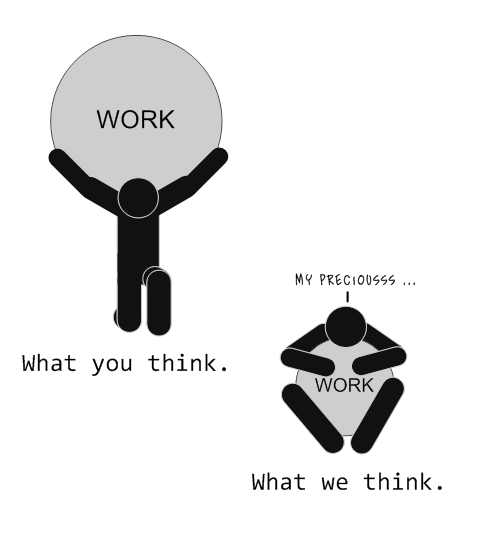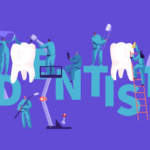Cut Your Stress And Micro Management In Half

YOU CAN DO IT ALL BY YOURSELF.
You can try to perform every task yourself or micro-manage everything your team needs to do. You know you can because you are a hard worker. You put yourself through dental school, and that was really hard. No one studied for you or wrote those exams for you. You did all of that on your own and were successful. I am telling you that you can build your practice by yourself.
BUT IT SUCKS!
You can micromanage everything if you want to, as long as you plan on being small and stressed. You can be a one-person operation if you want to work long hours, more than five days a week and rarely take a vacation. You can do it all yourself if you never want to grow your income or your nest egg. You can do it all yourself if you never want to achieve all the reasons you listed WHY you do what you do.
This is an honest moment. You need to master the art of delegation. Without working at improving this skill, you limit your ability to expand your operations and increase the size of your practice.
You’re not good at everything
When I was putting 60-80 hours a week into my practice while learning AND earning less every week, I had to be completely honest with myself. My first realization was that I can’t continue this pace over my 40-year career.
When I stopped and had an honest conversation with myself and with the help of my wife, I realized I suck at a lot of things and other people should be doing that work.
You don’t have the time
Time is one thing every person on this planet has in common. We ALL have the same 24 hours in a day. Though some will have more days than others, it is true that once the day has passed, there is nothing you can do to get it back.
You get to choose how you spend your 24 hours every day. Spending your time on low-value tasks will rob you of your ability to make decisions and will increase suffering from decision fatigue and carry-over lag. Both of these are principles in neuro-science and psychology which are proven to significantly affect your judgment and productivity.

Dentists and small business owners who try to go it alone or micromanage everything suffer from decision fatigue. The quality of their decisions drops because they have so many to make, simple and complicated. Both Steve Jobs and Mark Zuckerberg have admitted in public that they choose to wear the same clothes every day, removing one more decision they need to make each day. Jobs wore his signature turtleneck and Zuckerberg his notable t-shirt.
Carry-over lag, in its most simple form, explains that previous decisions have a residual effect on our current decisions as the emotional attachment carries over. Many of our day-to-day decisions have unnoticeable effects, as emotional attachment is low. For example, what you choose to eat for lunch. Other decisions, those with higher risk or that require more energy, can have an impact on your subsequent decisions for a number of days. The bigger the decision, the bigger the carry-over lag.
Learning Lesson
In his book Outliers, Malcom Gladwell professes that it takes ~10,000 hours of deliberate practice to master a skill or a subject. He uses the Beatles as an example and suggests all the nights spent playing in clubs and days practicing for gigs make them masters in their craft.
You have also spent the time to become a master. In your time going to dental school and working in your practice, you may have spent more than 10,000 hours of deliberate practice in your profession. How much time do you think you have available to master skills like accounting/bookkeeping, reception or operations? That’s a lot of hours! Mastering the art of delegation is building a team who are masters in their crafts and enabling them to get the work done.
Michael Gerber describes this as working in your business versus on your business in his book The E-Myth. Mastering the art of delegation starts with just getting over the fact that nobody is going to do the work exactly the way you want it done. It’s an unfortunate reality, but is acceptable, as long as you know the result you are looking for.

Even if the job is done 80% of the way you would like to see it, it will be good enough. An 8/10 for most of the work I need to delegate is pretty good. As a dentist, I take a lot of pride in my work, even to the point of being a perfectionist. That’s what our clients deserve when we are working in their mouths. If, because I chased perfectionism, I insisted on doing the bookkeeping, answering the phones, following up on appointments, cleaning the treatment rooms, ordering supplies and so on, everything would suffer.
Another way to look at it is if I delegate a task to someone who can only do 50% of what I could do if I did it, then it is 50% more than I could have done by myself.
Rules for delegating effectively:
- Delegate high- and low-value tasks to the right people.
- Be okay with good enough for certain tasks.
- Have confidence in the person/people to whom you are delegating.
- Have the other person paraphrase what you want in their own words to confirm understanding.
- Set a deadline for completion and then follow up.
High- and low-value tasks that can be done by someone else should be. A good rule of thumb is if the task can be completed by someone else for between $10-$100 per hour, it should be delegated. This, of course, includes lawyers and accountants, although I suspect you will be unable to find one in that price range!
There are some tasks that you just have to be okay with good enough. Anything that does not directly affect the client can be good enough. For example, does the supplies closet need to be organized exactly the way you want it? Probably not. Does the lobby need to be clean and organized? Absolutely.
The most critical piece for delegation is that you need to have confidence in the people to whom you are delegating. They need to have the skill, ability and desire to be able to perform the delegated task or activity.
Next, request the person paraphrase back to you what needs to be accomplished in their own words. This will confirm understanding.
Lastly, set a deadline for completion and follow up to confirm the work was done. This may be at the end of day, end of week or whatever timeline is appropriate. The structure sets an expectation.
There is little more that will destroy credibility and authority quicker than assigning a task and not following up for completion–especially if the task is not completed and there is no accountability after the fact.
Once you have all six elements, step back and get out of their way. If this person doesn’t deliver, you may need to find another individual. If they are a team member and not a third party, first ask yourself if you have trained them adequately, or if you have assigned the wrong kind of task to this individual. Delegate knowledgeably and consistently. What do you want them to do, how do you want them to do it, when do you want it done by and do they understand? That has freed up a lot of time for me, and that’s why I’m able to take this time and share it with you.
That is the difference between having a light touch (control) versus a heavy hand (insanity).




